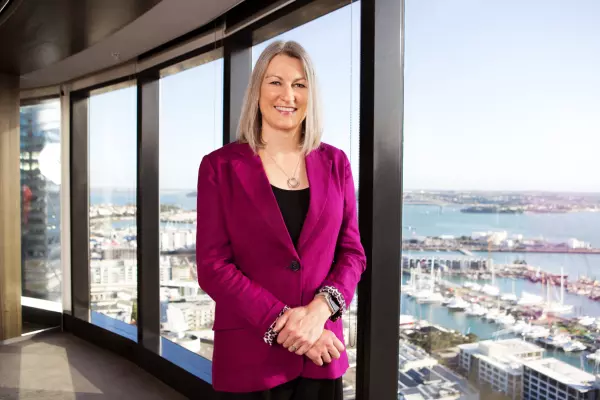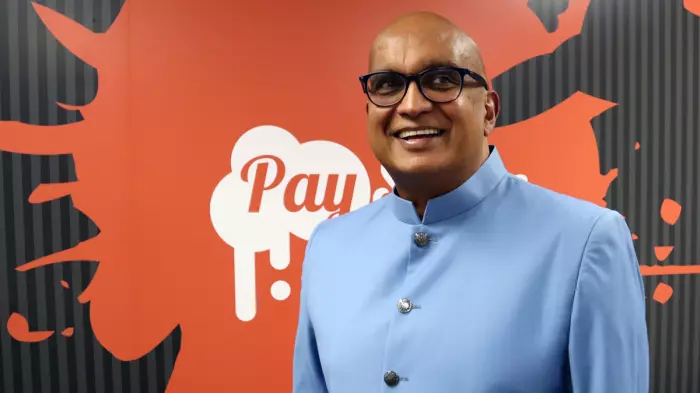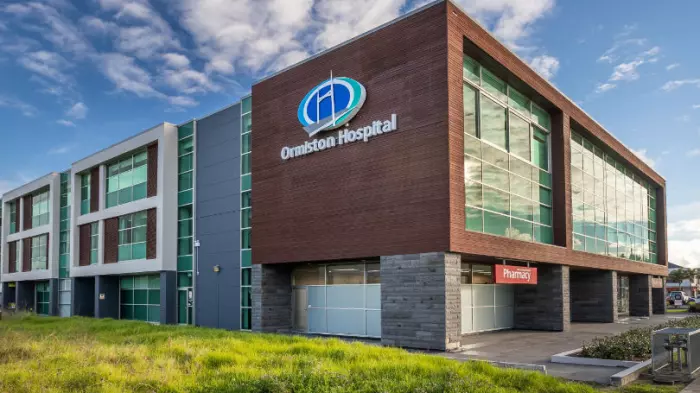Full Year Results to 30 June 2022 and Final Dividend
FLLYR
Mon, Aug 22 2022 08:45 am
FULL YEAR REVIEW
From the Chairman and Chief Executive Officer
SEEING PROGRESS, LOOKING AHEAD
The energy and focus of our teams continues to see us strongly advance our businesses across different horizons. The challenges of the year were balanced by clear evidence that we have exciting opportunities to explore in the years ahead. In a year marked by further COVID-19 disruptions and a changing economic background, we have increased our revenue by 9% from last year and our profit by 4% (if we exclude the impact of the increased accrual for the final payment related to the acquisition of Big Chill Distribution).
COVID-19 variants maintained their grip on our workforce this year, at times reducing our frontline numbers by as much as 30%, and impacting not just our customers’ businesses but also our branches which form a key part of our distribution network. The resulting staff absences, combined with lower consumer confidence in the later part of the year over inflation, rising costs and labour constraints, moderated the volume growth - and ultimately the full year result.
Overall, volumes were similar to last year’s, with periods of particularly high activity pre-Xmas offset by lower volume during lockdowns and the impact of the Omicron variant on New Zealand businesses. The second half was characterised by a very tight and expensive labour market, ongoing supply chain issues globally and possibly the first signs of a flattening of the NZ economy. Despite this, there were some significant spikes in demand, particularly at the end of calendar year 2021, when the team emerged from lockdowns to cope with a sudden surge in volumes. It was a massive effort from staff and contractors and we also thank those who also swapped their office roles to help sort and deliver freight through these tough times. The quality of our services allowed us to increase our overall market share, with new customers offsetting declines in existing business. Our contractors also stayed with us through the ups and downs and that stability absolutely contributed to continuing high levels of service.
Not all businesses were negatively impacted by the pandemic. Our Big Chill business, for example, continued its strong growth and was largely unaffected by changes in volumes, although did feel the impacts of a tight labour market. Our Med-X business in Australia also continued to build its market presence and revenue at an accelerated rate.
Building through horizons
Last year’s report spoke to how our purpose of “moving you to a better place” drives us to grow our revenue and earnings from our existing businesses via organic growth, margin management and efficiency gains. At the same time, we keep finding ways to improve - we look for new ways to pick up, process and deliver that add value. This year, we escalated that “three horizons” approach to four key areas of activity: Express Package & Business Mail; Temperature Controlled Logistics; Information Management; and Waste Renewal.
In our application of the 3 horizons model, we aim to:
- Extend and defend our first horizon revenue streams (i.e. business-to-business (B2B) deliveries, temperature-controlled transport, archive storage and document destruction);
- Nurture and grow our horizon 2 services (business-to-consumer (B2C) deliveries, temperature-controlled 3PL, digitisation and medical waste); and
- Generate genuinely new opportunities in horizon 3 (oversize express courier, same day temperature-controlled deliveries, high-value recycling, eCommerce 3PL).
Our first horizon services are the backbone of our business often built up over decades of operating and they provide the infrastructure and national network capability on which we establish our second horizon opportunities.
Second horizon revenue streams will typically have faster growth prospects and utilise the fixed cost base established in horizon one. In Express Package our B2C growth leverages the digital platforms, teams of people and physical infrastructure developed over years of B2B deliveries. Enhanced by our unique Pricing for Effort initiative, this service has developed strongly on the back of a sizeable lift in market demand, delivering strong revenue growth for the Group and fairer earnings for our contractors. Similarly, our Medical Waste operation in Australia has been built upon our national network established from Document Destruction and the capabilities that allow us to collect bins from customers and process them in a safe, secure and efficient manner.
Finally, there are our third horizon opportunities. Here, we use our innovation hub The Startery to identify emerging niches that have the potential to deliver tangible long-term revenue streams. In the case of the Express Package businesses, that’s enabled us to identify the “Oversize parcels” market as a niche driven by proven need. These parcels include items like bikes, prams and flat pack furniture. They’re generally between 25kg and 50kg in weight, too big for the traditional courier network but generally too small to suit heavy freight transport operators. Right now, oversized parcels make up about 5% of our delivered items. Our goal now is to use our Kiwi Express Oversize brand to develop this into a national express delivery service. Repriced to reflect the effort required, this new service will give customers simpler ways to move goods and pay our drivers a fair delivery fee for doing so.
We’re seeing the same value progression in our Waste Renewal business. That business began by centring on document destruction. From there, we evolved into medical waste. Now, as a third horizon, we’re adding a high-value recycling proposition covering everything from coffee cups to textiles to e-waste and our 100% recycled building product, SaveBoard. The most powerful aspect of all this is that the underlying infrastructure is the same across all three horizons. Our Waste Renewal business uses the same staff, trucks, facilities, shredders, and systems across everything it does to generate increased revenue and returns.
Our 3 horizons approach is attractive because it identifies complementary markets that are under-served, where we have proven capability and generally requires less capital by leveraging existing assets. Evolving our businesses from first horizon to third makes the most of our capabilities (Act like an entrepreneur, Strive for efficiency, Deliver reliably and Love our customers) and assists us in achieving sustainable growth.
A major acquisition in Australia
Of course, having an horizons approach does not preclude us from accelerating the process to acquire a business that has already got there. At year end, we put the finishing touches to an acquisition that has built a successful “Oversize parcels" courier business.
Allied Express is one of the largest, independently owned, specialised express freight operators in Australia, with a national presence which enables it to deliver 98% of their volume utilising their own infrastructure and the balance through a network of 48 agents. They offer both point to point same day metro delivery services and interstate delivery across Australia.
Allied differentiates themselves from the mainstream players by being market leaders in the delivery of items over 22kg in weight. The acquisition:
• Provides us with a scale entry point into the Australian express package market and a platform to grow from;
• Complements our core capabilities in express pick up, processing and delivery; and
• Provides a backbone network that we can leverage for growth from existing and new customers as well as the potential for service extension.
Allied has a team of around 1,150 people including 700 contractors and 450 staff, with clients ranging from large corporates to SMEs operating across a wide range of industries including online retailing, automotive, trade supplies and manufacturing. The sector also has higher barriers to entry because of the complexity associated with moving larger courier items.
We have looked for many years for an Express Package opportunity in Australia before choosing Allied and are excited by this acquisition. This deal has fast-tracked our horizons agenda in Australia exponentially and, of course, progressed our third horizon strategy in our Express Package business overall.
On track in terms of our sustainability goals
This year we will release our third Sustainability Report, having developed a science-based target for emissions reduction last year that will see us targeting a 50% drop in scope 1, 2 and 3 emissions by 2035. We have been Toitu certified since 2014.
Well over 95% of our emissions come from the fuel we use across our vehicles and aircraft. Our 2030 target of 35% reduction in CO2e and our 2035 target of 50% reduction in C02e (both for scope 1, 2 and 3) align with what society needs to achieve globally to keep global warming to within 2 degrees Celsius.
We continue to keep close to the progress being made in emerging technologies that are aimed to reduce carbon emissions. Based on current progress, our current strategy will commence with company owned vehicles - starting with 25% of company cars being PHEV by 2025 and 100% either PHEV, EV or hydrogen by 2030. We expect that our contractors’ light vehicles will begin to meaningfully transition to EVs from 2028 enabled by the rates of remuneration we provide, with a goal to having our entire light vehicle fleet made up of low emission vehicles by 2035. We anticipate that our heavy transport fleet will commence using alternative fuels from 2030, and by 2035 we expect that half of these vehicles will have transitioned. We expect our aircraft fleet will modernise at the end of the current decade. Having said this, the landscape is changing rapidly and we will be flexible in our approach as the emerging technologies are proven, including continuing to closely monitor and assess the availability of alternate low emissions fuels through this period.
We have already significantly reduced our use of plastics by adopting recycled satchels and fabric freight bags and developed solutions to enable our customers to recycle their soft plastics as well as diverting tens of thousands of tonnes of paper away from landfill and increasing our SaveBoard capability.
As part of our ongoing reporting, we will also refresh our Sustainable Development Goals (SDG) materiality over the next year to ensure that our SDGs continue to align with the interests of our stakeholders.
Full year review
Business unit performances
Financial performance
Express Package and Business Mail
Lockdowns and peak season surges resulted in overall revenue growth of 8.8% for FY22 with volume moderating as the Omicron variant hit and the economy began to flatten toward the end of the financial year. Operating costs were significantly higher in the second half – primarily due to the cost of labour to cover for COVID related absences, increased sick leave payments and the tighter labour market. Profit was largely flat because of these costs and the ongoing lag effect of higher fuel prices, where we give our customers the benefit of a 2-month lag before our FAF (variable fuel adjustment factor) reflects prevailing fuel rates.
Information Management
Strong growth in digitisation and medical waste drove divisional revenue growth of 9.6% for FY22 despite periods of lockdown in both NZ and Australia which restricted archive related activity and eDiscovery services. This strong revenue growth delivered a 14.3% increase in EBITA over the period.
Capex and Dividend
Total capital expenditure for the year was $24.7m. In line with our Capital Management Policy, the Board declared a final dividend of 19cps, bringing the full year dividend to 37cps, 3.5cps higher than last year.
Outlook FY23
We complete the year feeling confident that we have a successful platform for growth and profitability, both now and in the future. Over the year, we will continue to look after the first horizon of each business activity, further scale our second horizon initiatives and work with The Startery to foster those future third horizons. The successful integration of Allied Express, and the growth opportunities this will generate both in Australia and New Zealand, will be a key focus.
The first 6 weeks of FY23 have been characterised by a slight 1% decline in Express Package items consigned, on the prior comparative period (pcp). Existing customers are trading 5% lower than in the pcp offset largely by a net 4% market share gain. B2B is down 5% and B2C up 11% reflecting the nature of those market share gains over the past year. While comparing COVID impacted periods is challenging (for example there are far less COVID related personal protective equipment (PPE) and PCR tests traveling through the network compared to the previous year) a comparison to 2019 pre COVID levels reveals total item growth of 12%.
We believe the current impact on customer trade we are seeing is driven by a range of factors including a chronic shortage of labour which is restricting businesses from reaching their optimal output, continued disrupted supply chains and some slowing of economic activity. While same customer trade is slightly lower, we have seen no adverse change to our debtors profile.
We expect operational labour costs to increase by around 11% on the pcp reflecting a tight market and the need to secure quality people, as well as higher sick leave and costs related to filling those gaps. Fuel prices have had their first material fall in the last year and if this trend is maintained we expect that the fuel lag will allow us to recoup some of the losses we experienced in FY22.
Our General Rate Increase for most lines of business was implemented in July and is expected to largely offset the increased costs of operating.
Despite the present challenges in NZ and Australia for the businesses we operate - primarily the scarcity and increased cost of labour and some signs of an economic slowdown impacting consumption - we remain confident in our ability to manage the impact of these conditions on each part of our business.
Our people remain our greatest asset. We have a highly experienced and committed team, many of whom have been with us for decades. Our team got us through the challenges of the last two years and they will continue to be our greatest strength regardless of the economic climate. As we enter a new year their safety and well-being remains foremost in our minds.
We have implemented new pricing from July to offset the impact of a higher cost base. One critical advantage we have is that our cost base is highly variable, and this gives us the ability to profitably adjust to a deteriorating economic environment. As always, we will react decisively to any change in volumes while maintaining the service, safety and environmental standards that our customers, investors and other stakeholders expect. We will also prioritise the best strategies to deliver value to shareholders over the long term.
Finally, our thanks to all our teams for everything you’ve done this past year and to our shareholders and customers for sharing this journey with us and for your continuing support.




